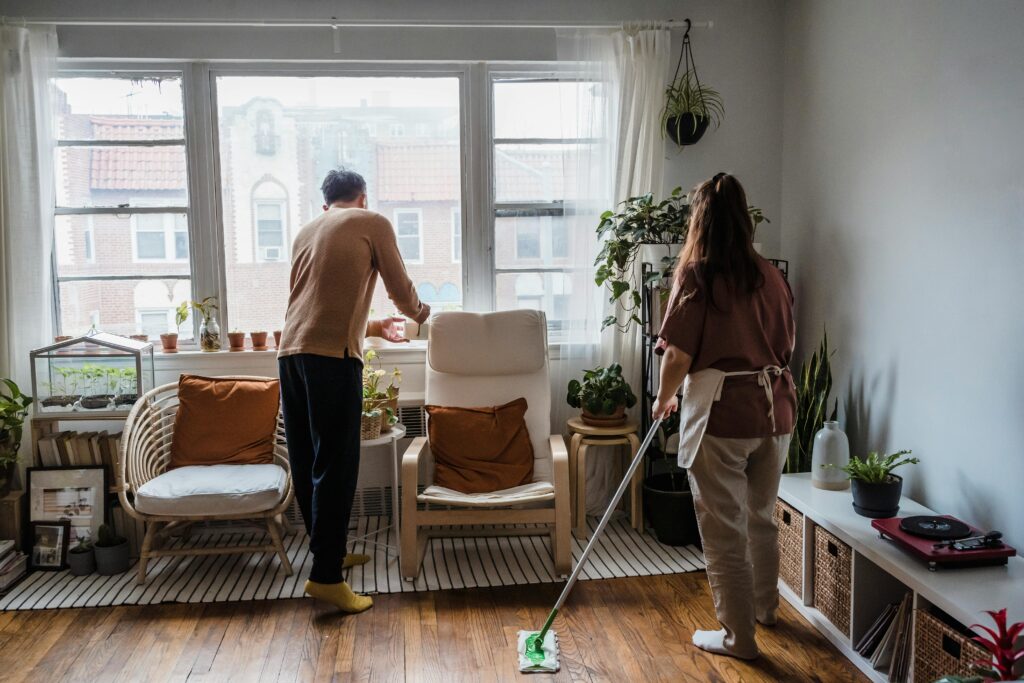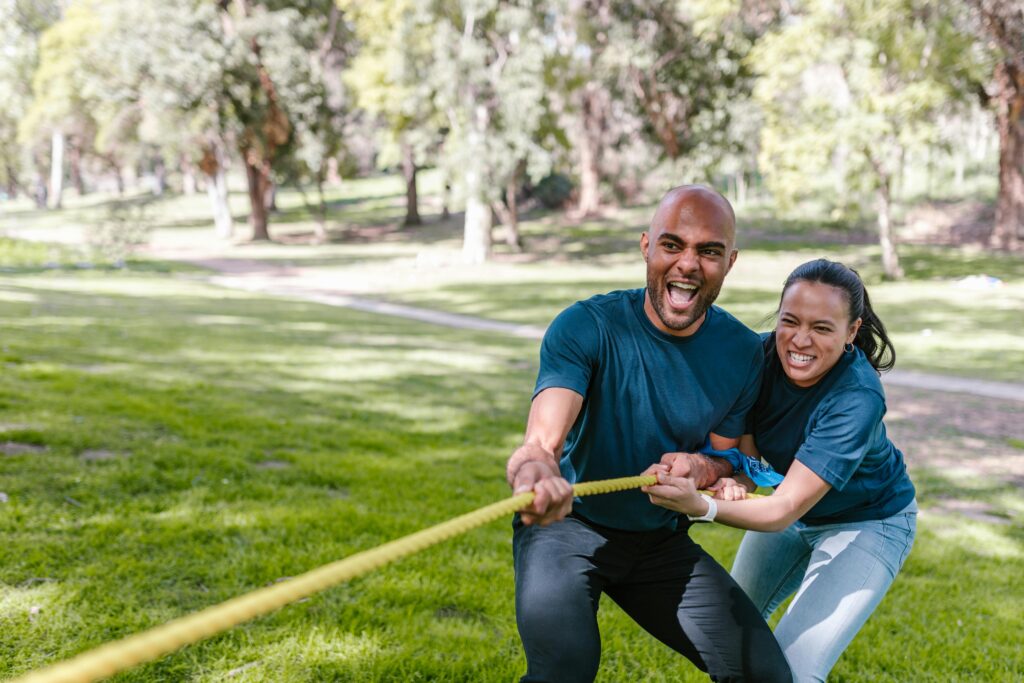Ready to get started? book your free consultation today
The Secret Ingredient of Happy Couples: Mutual Care
June 24, 2024
Imagine a world where you and your partner are so attuned to each other that you never need couples therapy again. The secret to this harmonious relationship is surprisingly simple. According to couples therapy expert, Stan Tatkin…
“If you both take care of yourselves and each other at the same time, all the time – regardless of stress or distress level – you’ll likely never need this or any other book on relationships”.

In other words, the key to a strong relationship is practicing both self-care and mutual care at the same time, all the time, no matter what.
The Balancing Act: Self-Care and Mutual Care
Self-care isn’t just a buzzword. It’s about making sure your physical, emotional, and mental needs are met. Think about how you feel when you’ve had a good night’s sleep, eaten a healthy meal, or taken time to unwind. You’re more patient, more understanding, and generally more pleasant to be around.
Now, mutual care is where the magic happens. It’s the act of looking out for your partner’s needs with the same level of commitment as you do your own. Think about the golden rule: “Do unto others as you would have them to unto you”. When both partners do this, it creates a dynamic where both feel valued and supported.

This sounds beautiful in theory, but what might this look like in reality? Here are some examples of mutual care…
Have a Daily Check-In:
Let’s take Sarah and John, a busy couple with demanding jobs. Every evening, they take ten minutes to check in with each other. It’s a simple ritual where they ask, “How was your day?” and genuinely listen. Putting the phones down and having eye contact. This small act ensures they stay connected and attuned to each other’s emotional states. It’s not just about the big stuff; it’s about sharing the little victories and frustrations of daily life.

Consult With Your Partner Before Making Plans:
August often finds themselves having a full social calendar due to Lily making plans without discussing with August first. This leaves August feeling out of control in their own life, for Lily’s decisions directly impact them. When August brought this up to Lily, Lily listened, apologized for the impact her actions had on them and came up with a plan to check in with them before committing to plans. August felt heard, valued and hopeful they would have more control over their schedule again.

Share Life’s Responsibilities:
Meet Alex and Jamie, who have two young kids. Instead of one parent shouldering most of the household responsibilities, they’ve split chores evenly and support each other’s personal time. When Jamie has a book club, Alex takes over bedtime duties, and vice versa. This mutual support system ensures neither feels overwhelmed or taken for granted. Resentment avoided.

Support Each Other’s Growth:
Consider Rachel and Mike. Rachel loves painting, and Mike enjoys running marathons. They both make sure to carve out time for their hobbies and support each other’s passions. Mike attends Rachel’s art shows, and Rachel cheers Mike on during his races. By valuing and encouraging each other’s interests, they maintain their individual identities while strengthening their bond.

Validate Each Other’s Emotions:
Consider Priya and Sam, who recently went through a miscarriage. This emotionally taxing experience could have pulled them apart, but instead, they leaned on each other. They attended therapy together, openly communicated their feelings, and gave each other the space to grieve in their own ways. By being each other’s rock, they emerged stronger and more connected.

Remember – You’re on the Same Team:
Think of Maria and Tom, who faced a financial setback when Tom lost his job. Instead of blaming each other or panicking, they sat down and made a plan. They reassured each other that they were in it together. Maria took on extra hours at work, and Tom managed the household and searched for new opportunities. Their teamwork and mutual support helped them navigate the crisis without letting stress drive a wedge between them.

The Continuous Effort
The key to never needing couples therapy again isn’t perfection; it’s continuous effort. It’s about creating a habit of caring for yourself and your partner, no matter the circumstances. This doesn’t mean conflicts won’t arise or that life will be free of challenges. It means you’ll face them together, with a foundation of mutual respect and love. Also, taking care of yourselves and each other doesn’t have to be grand gestures. It’s in the small, everyday acts of kindness and consideration. When you make this a priority, you create a resilient relationship capable of weathering any storm. So, start today. Check in with yourself and your partner. Listen, support, and love your partner and yourself — always.

References: Tatkin, S. (2023). In each other’s care (p. 64). Boulder, CO: Sounds True, Inc.
More Stories You'll Like
Get Started Today
Research shows that the client-clinician relationship is THE most important predictor of positive outcomes in counseling. Let's get to know each other & see if we might be a good fit!
Andrea Eaton Counseling offers counseling services for individuals, couples and families in the heart of Denver, Colorado.
If you are in crisis, please call the local mental health hotline at 1-844-493-8255, text TALK to 38255, dial 9-1-1, or visit the nearest emergency room.
303-219-0489 • hello@andreaeatoncounseling.com
789 Sherman Street #650, Denver, CO 80203
COPYRIGHT 2024 ANDREA EATON COUNSELING. SITE CREDIT.

